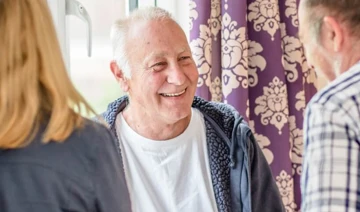How DIALOG+ is improving care
Date added: 15 February 2024
How DIALOG+ is improving care
DIALOG+ which was adopted by the Trust in November 2023, was designed to radically improve the way we communicate with service users, making our initial appointments therapeutically effective.
The approach, a series of eleven questions, helps to understand "How satisfied are you with….. " in several areas of someone’s life.
Studies have shown that used at regular intervals service users had improved quality of life, treatment satisfaction and had fewer unmet needs. Most importantly DIALOG+ enables people to direct their own care and to monitor progress
We are now three months into offering DIALOG+ in KMPT in line with the Mental Health Together rollout.
To celebrate, we took the time to speak to a member of KMPT staff using the new technique and look at some of the progress we’ve made in training our staff.
‘It builds rapport and confidence in those who use our services’
Jenna is a Mental Health and Wellbeing practitioner for KMPT and has been using DIALOG+ regularly.
‘I started working at KMPT as the first cohort of MWPs and we lived, ate and breathed DIALOG. It is such a good outcome measure because it doesn’t just look at mental health – but all the things that could affect it.
One of my clients was a single mother who had left an abusive relationship. She had been diagnosed previously with EUPD (Emotional Unstable Personality Disorder). DIALOG+ would distinguish that this was a one-off life event rather than a whole personality. She would have been able to be treated effectively.
DIALOG+ is a great tool in itself, but delivery is really important - which we are taught in training. It is designed to be an informal, friendly chat that you don’t put a time limit on. It builds rapport and confidence in those who use our services.
If I was to summarise DIALOG+ to other staff, I’d say it is a filtering system. It directs people to the treatments they need – be that financial advice, social prescribing or medication. It also makes them feel at the centre of conversations, listened to and respected.’




